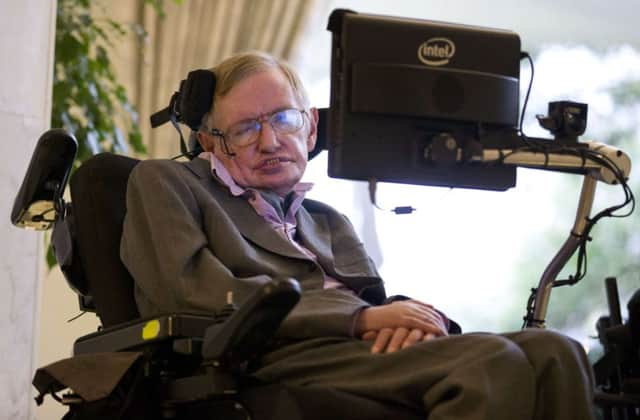Hawking: Machines pose threat to our existence


The pre-eminent British theoretical physicist, who wrote A Brief History of Time, said that the primitive forms of AI developed so far have already proved very useful, but he feared the consequences of creating something that can match or surpass humans.
He said: “The development of full artificial intelligence could spell the end of the human race”.
Advertisement
Hide AdAdvertisement
Hide AdProf Hawking added: “It would take off on its own, and re-design itself at an ever increasing rate. Humans, who are limited by slow biological evolution, couldn’t compete, and would be superseded.”
His warning echoes a similar one made by technology entrepreneur Elon Musk, who called the rise of AI “our biggest existential threat”.
The threat inherent in the development of AI technology is a theme Prof Hawking has touched on before.
CONNECT WITH THE SCOTSMAN
• Subscribe to our daily newsletter (requires registration) and get the latest news, sport and business headlines delivered to your inbox every morning
Earlier this year he said that success in creating AI, “would be the biggest event in human history, [but] unfortunately, it might also be the last”. Out of control AI is a popular theme in dystopian science fiction.
One of the most bleak accounts is that of Terminator in which an artificial intelligence defence network called Skynet becomes self-aware and launches a nuclear holocaust on mankind as way of preventing its own deactivation.
The professor’s warning yesterday came in response to a question about a revamp of the technology he uses to communicate, which involves a basic AI.
Prof Hawking was speaking at a press conference, detailing the latest stage of a partnership with Intel that has now lasted more than 25 years. The tech giant has created a new interface for Prof Hawking’s monitor.
Advertisement
Hide AdAdvertisement
Hide AdThis, combined with his speech synthesiser, has doubled the scientist’s speech rate and improved his productivity ten times over, said the company.
Prof Hawking suffers from a form of motor neurone disease related to amyotrophic lateral sclerosis which has left him almost entirely paralysed and relying on technology to communicate. He has used speech software to continue giving lectures at universities as well as write books as his condition worsened.
Prof Hawking said: “We are pushing the boundaries of what is possible through technology – without it I would not be able to speak to you today. Intel’s research and development is bringing about changes in the world and in the way that disabled people can communicate.
“With the improvements made, I am now able to write much faster, and it means that I can continue to give lectures, write papers and books and, of course, speak with my family and friends more easily. This new system is life changing for me, and I hope it will serve me well for the next 20 years.”
The new system, known as Assistive Context Aware Toolkit (Acat) was also partnered on by UK company SwiftKey, which develops predictive language software and has keyboard apps on both iOS and Android mobile platforms.
SCOTSMAN TABLET AND IPHONE APPS